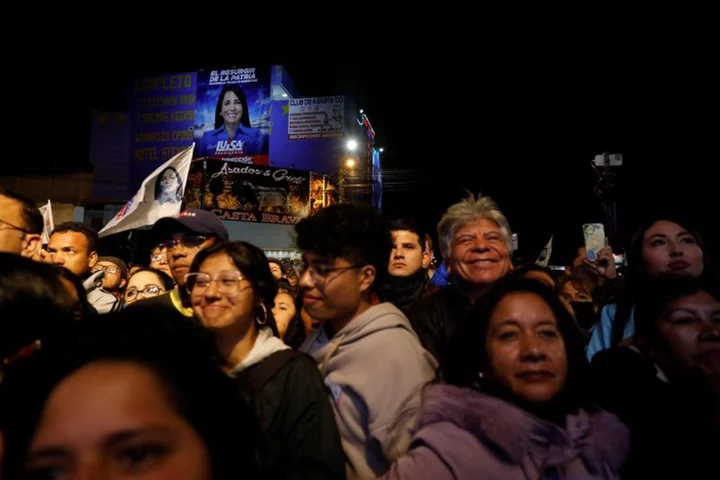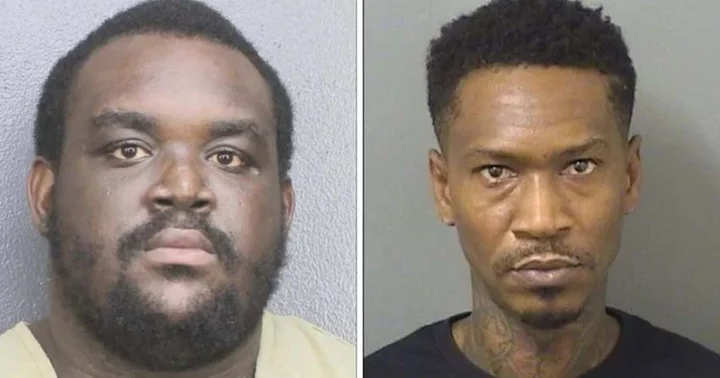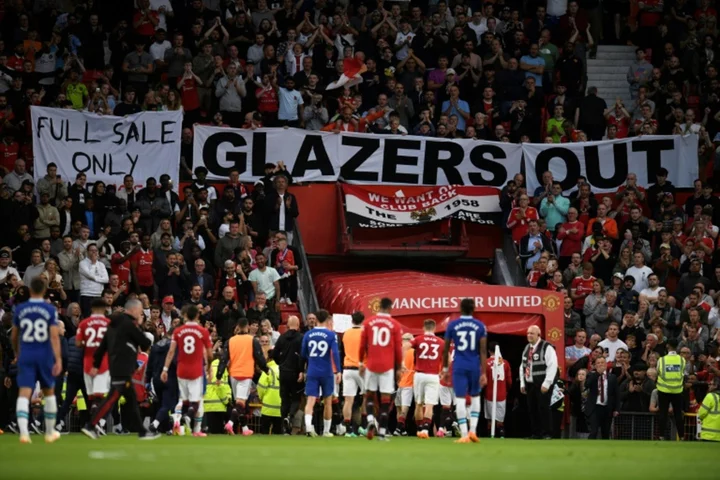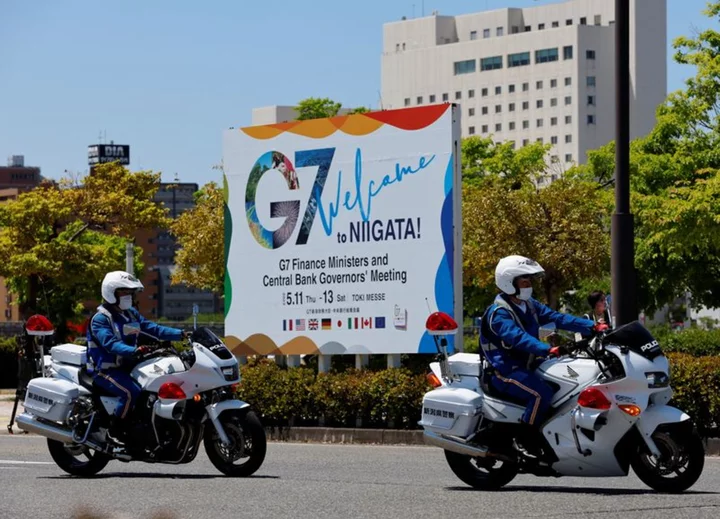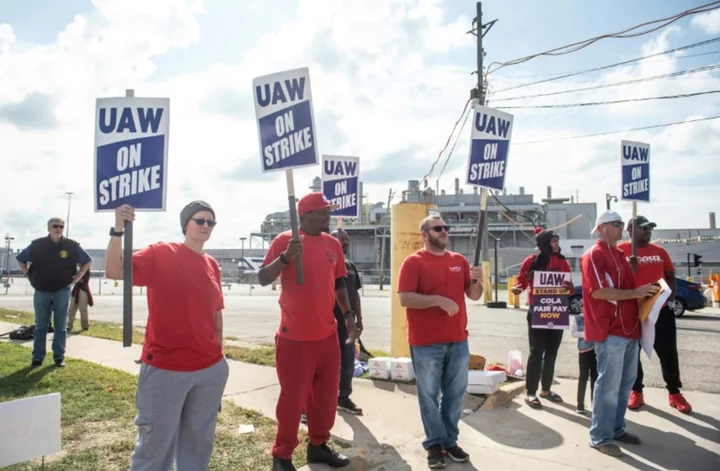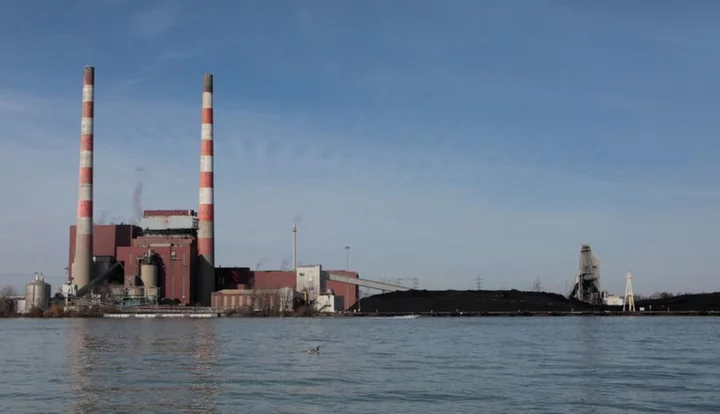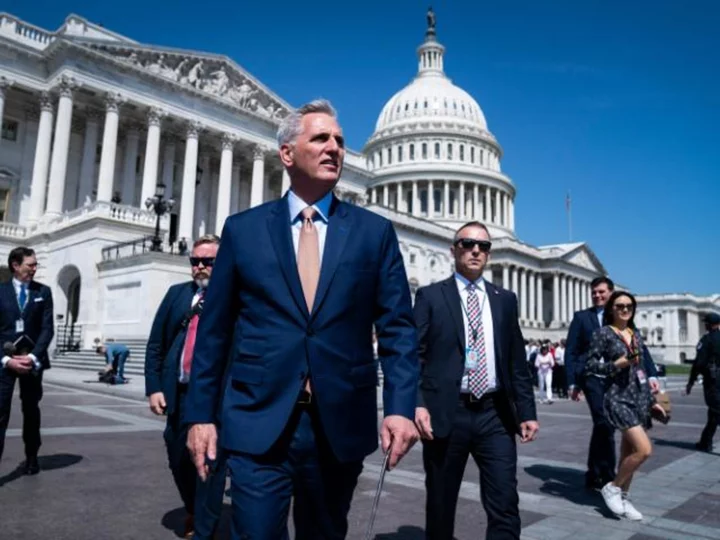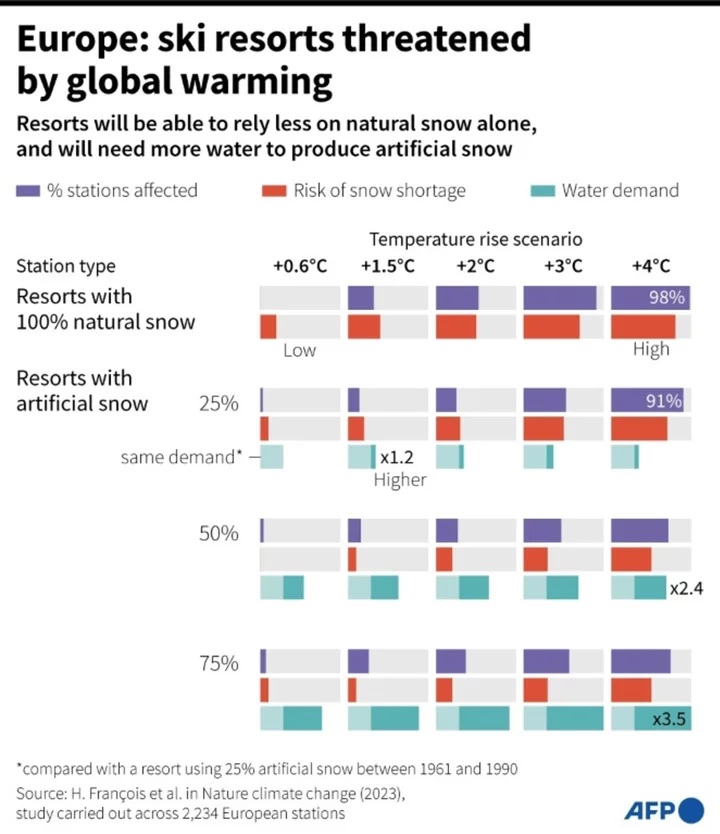By Alexandra Valencia, Julia Symmes Cobb
QUITO (Reuters) -Two former lawmakers, leftist Luisa Gonzalez and banana industry heir Daniel Noboa, will battle for Ecuador's presidency in an October run-off after coming top in the first round of voting on Sunday, with pro-business Noboa's surprising ascent a balm to investors.
Gonzalez, a protégé of former President Rafael Correa who has promised to revive his social programs, won 33% support, while Noboa, son of prominent banana businessman and perennial presidential candidate Alvaro Noboa, was a surprise second-place with 24% of the vote.
Center and center-right candidates, including Noboa, took over 45% of the vote. Noboa approaches the Oct. 15 runoff as a relative favorite despite Gonzalez's lead, though the vote is expected to be tight, said analysts.
"This result should continue to be constructive for valuations from the onset," said JPMorgan analysts in a note in which they remain overweight Ecuadorean bonds as "Noboa's platform seems to be aligned with fiscal prudence and a more stable macro environment."
Noboa, who seemingly gained support after performing well in the only televised debate of the campaign, was a lawmaker until current President Guillermo Lasso dissolved the national assembly and called early elections. His campaign has focused on job creation, tax incentives for new businesses and jail sentences for serious tax evasion.
Gonzalez has promised to free up $2.5 billion from international reserves to bolster Ecuador's economy and bring back million-dollar social initiatives Correa implemented during his decade in power.
"We think markets will likely welcome the outcome of yesterday's vote," said Stuart Culverhouse, head of fixed income research at Tellimer Research in a Monday note, adding that it allows the anti-Correa, business-friendly vote to coalesce.
The contest was darkened by the assassination of anti-corruption candidate Fernando Villavicencio earlier this month. The crime is still under investigation, but Villavicencio, who was replaced as a candidate by his friend and fellow investigative journalist Christian Zurita, came third with 16%.
Villavicencio's name appeared on the ballot papers because they were printed before his murder.
Sharp increases in crime, which the current government blames on drug gangs, and the struggling economy, whose woes have caused a rise in unemployment and migration, were the top concerns among voters.
Though Noboa is likely to look for alliances with candidates who have been eliminated, any potential victory will depend on how well he articulates policy proposals, said political analyst Alfredo Espinosa.
"Noboa has tried to sell himself as a businessman and a young technocrat," said Espinosa. "If he can do that same exercise with the proposals of the (other) candidates that will give his rhetoric much more meaning."
"Politics is not comparable to managing a private business, it means generating consensus, generating spaces for dialogue," Espinosa said.
Gonzalez, backed by Correa's political machine and its loyalists, especially in working class sectors, is in a strong position as the "second round will be plagued with ideological content," the political analyst said.
Correa's Citizens' Revolution party was leading a nearly complete count for seats in the national assembly, with about 39% support, while Villavicencio's Construye party tallied 21% and Noboa's National Democratic Action 14.7%.
Also on Sunday's ballot were two environmental referendums that could block mining in a forest near Quito and development of an oil block in the Yasuni reserve in the Amazon.
The oil block referendum was winning 59% support, with almost 100% of ballot boxes counted, while a ban on mining in the Choco Andino forest near Quito was also winning with 68% support.
"The referendum results have the potential to impact both economic activity and government revenues, that could lead to a deterioration in the sovereign's fiscal balance," said Goldman Sachs analysts in a Monday note.
Advocates say the bans are necessary to protect nature, fight climate change and, in the case of the Yasuni vote, safeguard some Indigenous Waorani people who are voluntarily isolated.
Last week, Fitch cut Ecuador's foreign currency debt rating further into junk territory on financing risks from deteriorating fiscal accounts, with default "a real possibility."
The South American country has nearly $16 billion in debt, with the next payment above $1 billion not due until 2030.
Bond prices were up marginally, about half a point in the 2030 note to 49.25 cents on the dollar. Ecuadorean spreads to U.S. Treasuries, the premium demanded by investors to hold those bonds over risk-free debt, was 1,787 basis points, from just over 2,000 bps earlier this month.
(Reporting by Alexandra Valencia and Julia Symmes Cobb; additional reporting by Rodrigo Campos; Editing by Simon Cameron-Moore and Josie Kao)

